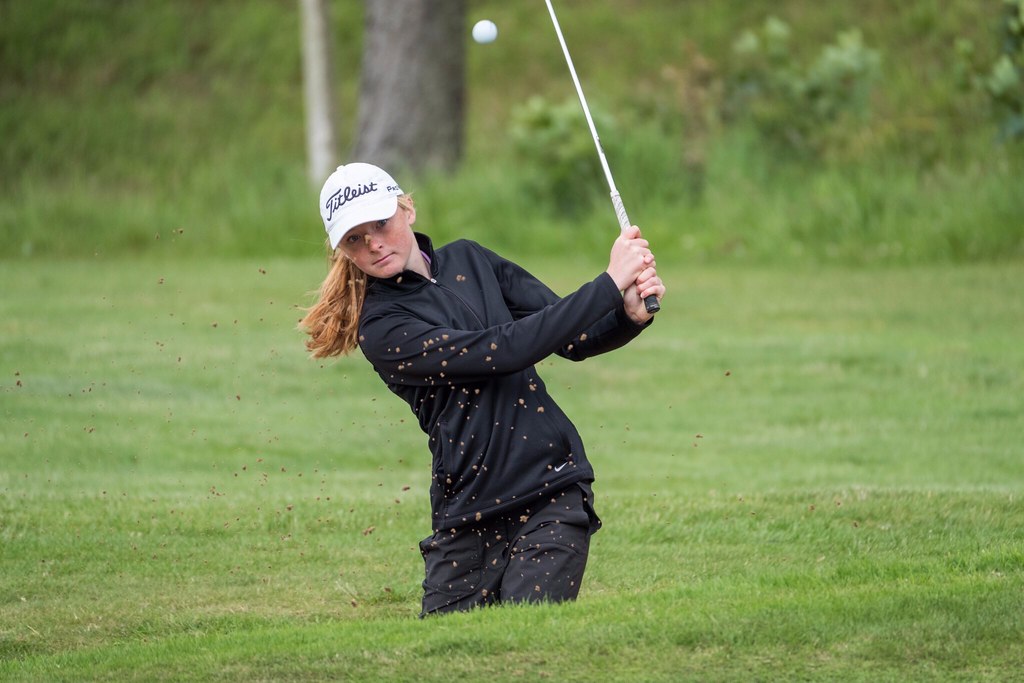Golf has a “massive opportunity for growth” when it becomes one of the first sports to emerge from cold storage in Scotland amid phase one of the easing of lockdown restrictions.
That is the view of Karin Sharp, chief operating officer of Scottish Golf, who has played a key role in discussions that are set to see the Scottish government formally give golf’s return the green light this Thursday under strict social-distancing requirements.
“Golf has been recognised as a sport that can provide both physical and mental wellbeing. It’s played from young to old and covers such a wide part of the population,” said Sharp. “There’s a massive opportunity to attract new participants, not as a detriment to other sports but as a pastime that people could see as complementing their wider activity base.
“We’re hearing from our counterparts in England and Wales, who have been a bit ahead of us in reopening, and they’ve got many positive stories coming back from clubs around spikes in membership enquiries and conversion. There’s no reason that can’t be the case in Scotland too.”
Scottish Golf has advised clubs to gear up for reopening from May 29. Two-balls will be permitted between players from different households, and groups of up to four — from no more than two households — will be allowed at the discretion of clubs. The 2m social-distancing rules will still be in place, and there will be no touching of course fixtures and equipment. Travel restrictions are another reason that this is not simply a resumption of pre-coronavirus golfing life.
“Normal as we’ve all known and possibly taken for granted for many years, is definitely going to be different for a period of time. That length of time hasn’t really been quantified as yet,” said Sharp, who was COO of the Scottish Ladies’ Golfing Association before its 2015 merger with the Scottish Golf Union to form Scottish Golf.
“Golf does lend itself to being flexible, however, and a more casual approach to the game in the first instance is probably accepted. As a sport, we’re renowned for adhering to rules and etiquette and the information we’ve circulated has been positively received. It’s a framework that outlines guidelines but gives clubs enough flexibility to determine how that works for their own facility.”
Scottish Golf, which has stripped its own operations back to the bone, has offered clubs a 25 per cent refund or rebate on affiliation fees in a bid to ease a cash-flow crisis which the governing body’s research estimates has seen the average club suffer lost revenue of £20,000 per month in the shutdown.
“Gross that up across Scotland, and it’s £9 million-£10 million per month across the industry,” said Sharp. “Clubs have been better or worse off depending on when their membership renewal dates fell, while some clubs have been able to access government support. For many clubs, a combination of using furlough schemes, grants and membership renewals means they are well placed, but that’s not the picture across the piece.
“Travel restrictions and [the impact on] visitor revenue is a real fear for a lot of clubs, and not just the big trophy courses. A lot of the smaller, holiday destinations do not command green fees of massively significant value, but it’s still a big contributor to their annual revenue.
“The immediate impact may not be overly concerning in some areas, but that longer-term piece is where a lot of clubs have significant fear. Recovery is going to be fairly prolonged.”
Sharp stepped up to lead Scottish Golf in mid-April after the resignation of chief executive Andrew McKinlay. He was the third CEO to depart in four years, which has led to stinging criticism of chairwoman Eleanor Cannon.
Sharp, who suffered a suspected case of Covid-19 towards the end of March, acknowledges there is work to do in shoring up the governing body’s image, but insists the string of high-level departures is not symptomatic of a failing organisation. “Change is inevitable in all sectors and I don’t think any of that was anything to do with anything other than it being right for the individuals at the time. In terms of how we are perceived, relationships within any member organisation can often be difficult to properly gauge, but I do think it’s something we can and will do more on.
“Strong collaboration is vital for golf in Scotland to flourish. We need to make sure we’re communicating effectively so that everyone understands and is supportive of what we’re all trying to do to grow the game.
“There’s a massive opportunity for golf in attracting new participants, and every one of us, at every level, plays a part in shaping the opinions and perceptions of external individuals who are potential new or returning golfers. We need to take collective responsibility for the image of golf.”









